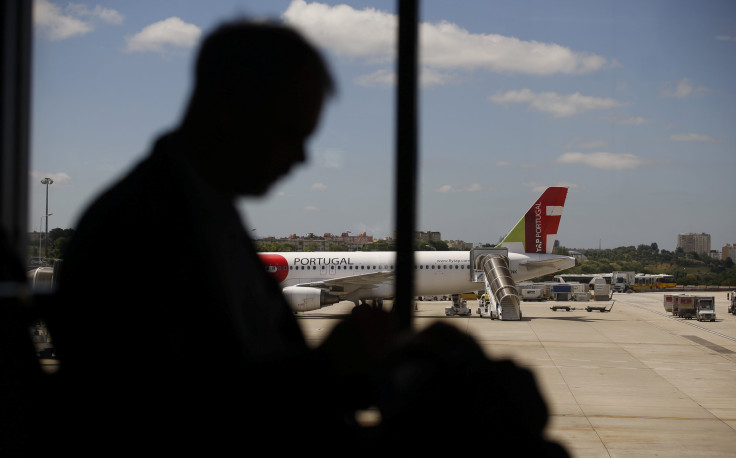Move To Canada? These Are The Easiest Countries To Move To After The Election Depending On How Rich You Are

Nuri Katz has heard it all before: whether it’s a pessimistic attitude toward the direction of the country, hoping to gain a new perspective of the world or avoiding tax hikes, thousands seek aid from the international citizenship expert on how to move out of the country in the wake of every national election.
With six passports himself, Katz knows just how unrealistic it is for everyday Americans to pick up and leave every time someone they don’t like is elected into the White House. Google saw an unprecedented surge in searches for moving out of the country after George W. Bush’s 2004 reelection victory – and again each time President Barack Obama was elected after. Most recently, Canada’s immigration website crashed the same night Donald Trump was announced the official president-elect. Despite the public’s dire interest in escaping each White House administration, however, the immigration practitioner says "citizenship hopping" is a freedom exclusively held by the mega-rich.
"Unless you’re someone extremely wealthy, or you somehow have the ability to sell your house, your car and move to Canada, the idea of leaving the country after an election isn’t exactly realistic," Katz, a licensed member of The Immigration Consultants of Canada Regulatory Council, told International Business Times. "Even then, most people don’t even qualify for citizenship in Canada. Most won’t even be able to file an application."
Searches for "how can I move to Canada" on Google have spiked +350% in the past four hours #SuperTuesday
— Simon Rogers (@smfrogers) March 2, 2016
Americans hoping to head north each time election results aren’t in their favor doesn’t make much sense when put in perspective. Taxes are generally on par with what Americans pay in the states, and often times can be even higher. There also isn’t any special exception reserved for Americans hoping move to the neighboring country, which means Americans are just as likely to face months of waiting for temporary resident visas and rejection from Canadian citizenship as any other international immigrant. The process includes several obstacles and endless red tape and requires a significant amount of time and money, which often deters any normal citizen from ditching their American passports for a fresh Canadian one. Katz says he’s seen an outpouring of inquiries from Americans hoping to start fresh in a new country after the 2016 presidential election, though nothing serious has come to fruition.
Ditching American citizenship has been a hot trend for the nation’s top one percent in recent years, however. The country has seen an uptick in thousands of members from the upper class gaining citizenship in other countries within the last five years. 2015 saw 4,279 Americans ditch their citizenship, a 20 percent increase in just one year – the third record-breaking year in a row. That number is 18 times higher than the rate of Americans renouncing their citizenship in 2008.
Analysts see growing tax burdens on the nation’s biggest earners as one of the prime examples why more Americans are leaving under President Barack Obama than ever before. But experts like Katz don’t foresee that rate declining under President-Elect Donald Trump: rather, more Americans than ever before will likely continue the rich’s mass exodus.
"There’s a lot of higher net worth Americans who are going to be politically and financially motivated to find other options than ever before," Katz said. But they’re not all heading to Canada. "Canada is already struggling with the amount of interest from all over the world, including China, Mexico and India, and taxes are much higher for wealthy Canadians."
Instead, America’s wealthiest citizens are participating in the Caribbean’s Citizenship by Investment programs. The costly system allows for international immigrants to gain citizenship in countries like St. Kitts & Nevis, Grenada, Antigua & Barbuda, Dominica and Cyprus by investing hundreds of thousands of dollars into property in their chosen region. For those able to purchase real estate in these countries, citizenship acquisition could take just as much time as purchasing the land needed to seal the deal. The majority of Citizenship by Investment programs don’t require any interviews or oaths to be given for approval. In fact, those granted citizenship status under these programs don’t even need to live in the country to maintain their status.
The number of Americans renouncing citizenship is up 560% since a Bush administration high https://t.co/bW6EaIUTIV pic.twitter.com/p4GneMpavO
— Forbes (@Forbes) May 7, 2016
Citizenship by Investment programs began as a means of attracting wealthy investors into the Caribbean, which is exactly what it has done. Katz says the ease at which millionaires can gain citizenship throughout the region has caused an unprecedented spike in interest from wealthy elites seeking a second passport, or to ditch their American roots entirely. Similar investments in expensive real estate properties in exchange for citizenship status have begun popping up through Latin America and beyond, in countries like Spain, Latvia and Greece.
Still, Katz says middle class Americans do have some options for fleeing the country ahead of the next presidency’s tenure in the Oval Office – for now. Canada could prove to be a solid for some Americans, especially with NAFTA extending certain benefits for Americans which speed the immigration process for skilled workers. Those privileges don’t extend to acquiring citizenship however, and Trump could end up repealing the trade deal, as promised along the campaign trail.
"People don’t really understand Canada is actually a different country: You have to immigrate, and immigration no matter what is a difficult process," Katz continued. "And if Trump annuls NAFTA then you’re straight out of luck."
© Copyright IBTimes 2024. All rights reserved.





















